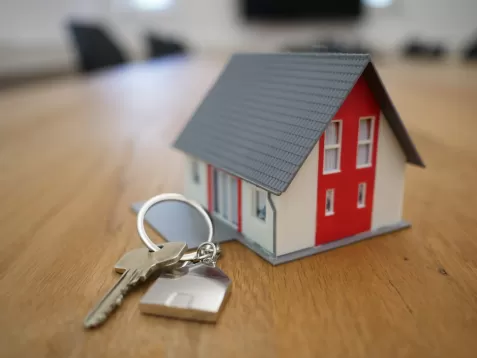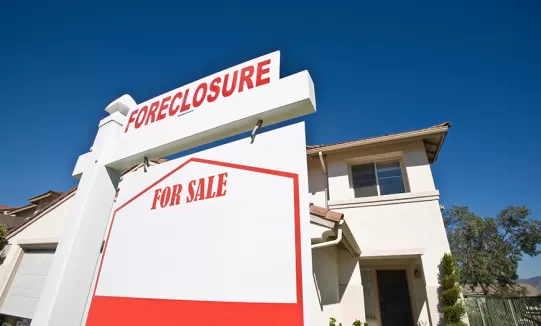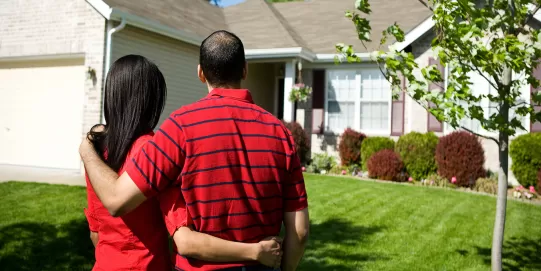Homeowners insurance is a necessity that comes with home ownership. From fire to theft, broken pipes to a tree limb crashing through the roof, your homeowners insurance covers you when disaster strikes, helping you recover and get back to living.
Unless you collect jet planes or rare Greek sculptures, a home will likely be the biggest financial investment you make. Doesn’t it make sense to protect that investment?
According to the Nevada Department of Business and Industry (which governs insurance in the state) website, homeowners insurance policies are not required by Nevada law. However, mortgage lenders can require that a homeowner purchase homeowners insurance as a condition of the loan, in order to protect the bank if the home were to be destroyed. If you ask us (which, face it, you kind of are by reading this), it’s just a smart thing to do.
RELATED: Is Making An Extra Mortgage Payment Smart?
If you’re looking to purchase a home, you’ll need to put shopping for insurance on your to-do list. And if you already have a policy, it may be time to review.
What is homeowners insurance?
Homeowners insurance is protection for your home in the event of an, “Oh no!” event. Think: fire, water damage from a broken pipe, a baseball through a window, or the mailman tripping on your garden hose and breaking an arm (ouch!).
While each policy is different, these are generally the things homeowners insurance protects:
1. Dwelling
This is your home itself – walls, roof and any attached decks or garages. So if your home is uninhabitable due to damage, you won’t have to throw up a tent in the backyard. Most policies will pay for you and your family to live somewhere else while your home is repaired.
2. Other Structures
This protects additional buildings on your property such as sheds or detached garages.
3. Personal Property
Protection for the items in your home, like your furniture, clothing, computers. Your insurance policy can cover both loss and damage.
4. Family Liability
If you or one of your family members is found legally responsible for another person's injuries or damage to someone else's property, this part of a homeowners insurance policy can cover your financial obligation.
5. Guest Medical Protection
When a guest in your home is accidentally injured on or around your property, this portion of a homeowners insurance policy can help pay medical bills. Don’t assume this is a vindictive guest. Accidents happen, and medical bills can be big.
Bear in mind, flood and earthquake damage are not covered by a standard homeowners insurance policy. These policy costs will depend on the likelihood of those disasters in your home’s location.
Finding the right policy and company will make all the difference when you need it. Consider these two conflicting experiences:
New homeowner, Sarah L. shares on Facebook, “When our home flooded, the insurance [company] found an excellent damage mitigation company. One of those workers gave Mike a lot of tips and advice with our flood, even texted him to check and make sure we were doing alright after the cleanup. Filing the claim and follow-ups were pretty straightforward and we felt like we were compensated for damages and loss.”
Barry S. had a very different experience when a pipe under a house he owned in another town burst, flooding under the house and the yard. Barry shares, “The plumbers determined that the plumbing was so old that it all needed to be replaced. We filed a claim. Not only did they deny it, they came out and assessed the property, found lots of things they wanted done to the place and if we didn’t have it all done within 30 days – impossible, not to mention VERY expensive –they would cancel the insurance.”
How to shop for homeowners insurance
You’re not buying peanut butter here, so give yourself time to make a smart purchase. Don’t wait until you need it to find out if it will serve your needs. A good place to start: your friends. Ask for referrals from people you know, particularly those who have had cause to file claims.
1. You better shop around
Like most things, doing a little research can serve you well in the long term. However, don't let price be your only guide as insurance is only as good as the relief it provides when you need it. In addition to asking friends, consider online customer reviews and Better Business Bureau rankings.
2. Premium vs deductible – what’s your pain point?
The premium is the fee you pay to the insurance company for them to cover you (usually annually). A deductible is the amount you have to pay toward a loss before the insurance company starts to pay on the claim. The higher your deductible, the lower your premium (and vice versa). Nowadays, most insurance companies recommend a deductible of at least $500. If you can afford to raise your deductible to $1,000, you may save as much as 25 percent. Consider how likely you are to file a claim: Is your home prone to wind damage, at risk for wildfire, have older pipes more likely to burst? You may want to keep the deductible lower. Your insurance policy may have a separate deductible for certain kinds of damage (e.g. flood damage if you are in a flood zone).
3. Consider your rebuild cost, not your home price
The maximum payout for your policy would be to rebuild your home in case of a disaster. When you’re figuring what that number should be, remember that the land your home sits on will still be there even if the home is a total loss (we’re not in Florida after all). So, don't include the land value in deciding how much homeowners insurance to buy.
4. Bundle, baby
Just about every insurance carrier will offer a discount for purchasing multiple policies. Most commonly, people bundle home and auto. You might start by contacting your current auto insurance carrier (assuming you like them) and seeing what deal they can make you.
5. “Secure” a discount (for home security, get it?!)
You can usually get discounts of at least 5 percent for a smoke detector, burglar alarm or dead-bolt locks. Some companies will cut premiums by as much as 15 or 20 percent if you install a sprinkler system and a fire and burglar alarm that rings at a monitoring station. However, before you make the investment, find out which systems your insurer recommends, how much the device would cost and how much you'd save on premiums.
6. Manage your credit score
If we know you, and we think we do, you’re way ahead on this (‘cause you read this). Home shoppers likely already know the importance of a good credit score for favorable lending terms, but your credit score can impact your homeowners insurance policy as well. According to the Insurance Information Institute, insurers are increasingly using credit information to price homeowners insurance policies.
RELATED: Your Credit Score, Demystified
You already have homeowners insurance? Sorry, your work’s not done.
If you already have homeowners insurance and you’re still reading this article, your perseverance is about to pay off. Here are a few tips for you:
1. Reassess every year
Because things change, the Insurance Information Institute advises reviewing your policy annually. You want your policy to cover any major purchases or additions to your home and you don't want to spend money for coverage you no longer need. If your five-year old flat screen is no longer worth the $8,000 you paid for it, you'll want to reduce or cancel your floater. However, if you just upped your backyard entertaining game with a new deck, you’ll want to up your coverage. Consider hiring an independent appraiser to get an accurate rebuild cost.
2. Ask for the loyal customer discount
Some insurers will offer a small discount for customers who stay with them for a certain number of years. However, don’t wait for them to volunteer this information: Ask, every year if necessary.
3. Check your credit
If you’ve improved your credit score, you may qualify for a premium reduction, but you won’t get it if you don’t ask.
Homeowners insurance may not be one of the most exciting purchases you make for your home, but it could be one of the most important. If you’re still in need a home to buy insurance for, consider the awesomeness of our Home Is Possible programs to make your purchase more affordable.


